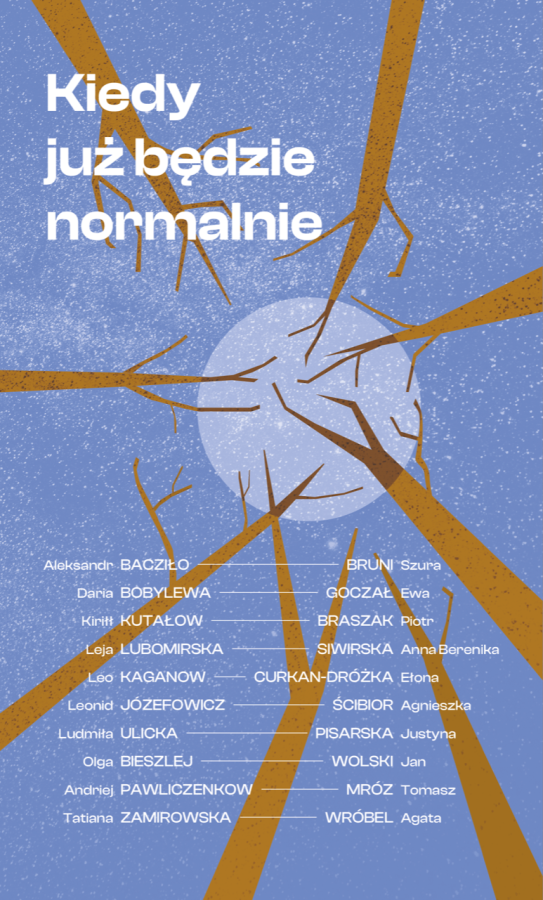Once it is normal
The title for this anthology of short stories by Russian contemporary male and female writers was chosen long before the Russian invasion of Ukraine on 24 February 2022. Even then, as we watched the progressive curtailment of freedom of speech in Russia and followed the successive names placed on the list of foreign agents, we kept repeating this question: when will it be normal again?
We kept repeating this as we watched the progressive militarisation of society and the instrumental use of history for current politics. When will it be normal again - we asked while seeing how ‘Memorial’ was destroyed.
Reading today the stories of Russian (and Russian-speaking) writers and writers, which were written not long before the invasion, we can observe the state of Russian literature ‘a moment before’. We see, among other things, a rejecting and cruel picture of a Russian ‘glubinka’ dominated by propaganda, the destructive influence of the Orthodox Church, alcoholism and violence against women, and a post-apocalyptic picture of Moscow after the climate catastrophe.
In the introduction, Katarzyna Kwiatkowska-Moskalewicz writes:
'This collection of short stories selected by literary critic Alexander Gavrilov focuses and reveals the multi-vectorality of contemporary Russian literature as if through a lens. The anthology combines seemingly incompatible forms and styles of expression, and the impressive kaleidoscope of worlds created by Russian prose writers, masters of the small form, delights at first sight. (...) On the surface, it is difficult to find a common denominator in this literary assemblage of content. However, it creates a controlled, carefully thought-out chaos. It is intended to reflect the internal incoherence of Russian literature and its confusion with itself.
The anthology includes short stories by Lyudmila Ulytskaya, Daria Bobyleva, Kirill Kutalov, Tatiana Zamirovskaya, Olga Besley, Aleksandr Bachylova, Lea Lyubomirskaya, Andrei Pavlychenkov, Leonid Jozefovich, Leo Kaganov.
I dream of fruit banned in Russia, which grows in New York, in my dream I stuff it in a suitcase. The smuggling of values, the trading of ideas, the illicit circulation of insights and experiences. Forbidden fruit smells of the streets of Harlem, the New York underground and something else I have no clue about at the moment.
Forbidden Fruit, Kirill Kutalov
The book is the result of the work of translators and interpreters who took part in Words on Words. Polish-Russian School of Translation.
